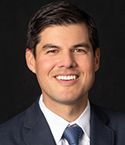secured-credit
In 2024, the Secured Credit Committee assisted with ABI’s educational programming by teaming up with the Business Reorganization Committee and the Unsecured Trade Creditors Committee at ABI’s 2024 Annual Spring Meeting for a session titled, “Working Together: Collaboration Between Secured Creditors and Unsecured Constituents.” This panel discussed the history of secured and unsecured creditors’
In order to confirm a plan under chapter 11 of the Bankruptcy Code, a debtor must satisfy the requirements of 11 U.S.C.
Under § 506(a)(1) of the Bankruptcy Code, a secured creditor’s claim is secured only to the extent of the collateral’s value. Any amount over that value is bifurcated into a separate unsecured claim [1].
We can hardly believe that 2023 is coming to an end.
California faces a common, unfortunate and alarming reality: wildfires. So far in 2022, California has faced approximately 6,739 fires covering almost 365,895 acres. [1] Beyond and often as a consequence of damaging property, land and wilderness, wildfires can also lead to bankruptcy.
Though hints of a digital reality first surfaced as early as 2003 when Second Life made its debut, Facebook’s fall 2021 rebranding — to “Meta” — brought the metaverse to the center stage. That Facebook CEO Mark Zuckerberg would go so far as to change the iconic name of our favorite friend-finding app surely signaled a sense of inevitability that the metaverse would soon pervade our lives.
Creditors that file motions to dismiss or convert pursuant to 11 U.S.C. § 1112 [1] to reduce delay by debtors must generally avoid continued hearings in subchapter V cases. [2] The § 1112 motion requires the debtor to show, in part, that “there is a reasonable likelihood that a plan will be confirmed ...
If a mortgage is ambiguous or contains a mistake, a lender may generally reform the mortgage under state law. [1] But what if a borrower files a bankruptcy petition before a lender does so? In a divided opinion, the U.S. Court of Appeals for the Fifth Circuit confirmed that a lender may not reform a mortgage post-petition.
At this year's ABI Annual Spring Meeting, being held April 28-30, 2022, at the JW Marriott in downtown Washington, D.C., the Secured Credit Committee will be partnering with the Asset Sales Committee to present "Challenges Facing Secured Creditors in Asset Sales." This session will focus on covering lenders’ perspectives on chapter 11 strategy and options, such as note sales, out-of-court restr
We’ve all seen it, right? Loan documents where a borrower grants a blanket security interest in nearly all of its assets to a lender, including assets that it may acquire in the future? These “after-acquired” security interests in real and personal property are all too familiar to most secured lenders — especially when lending to a sophisticated business with fluctuating assets.
Pagination
This panel provides an in-depth, dynamic discussion on (1) forensic analyses employed to identify and untangle fraud and maximize recoveries; (2) standing to bring certain claims in fraud cases; (3) claims often pursued in Ponzi and other fraud cases, including aiding and abetting fraud, aiding and abetting breach of fiduciary duty, and conspiracy; (4) the Ponzi scheme presumption, clawback and defenses; and (5) in pari delicto and its applicability, along with other potential defenses.
This panel will discuss various issues arising from the development of a new class of collateral: that which is remotely controllable. The concept of a secured creditor controlling its collateral is of course not a new or novel concept. However, the ability of secured creditors to control their collateral remotely is growing rapidly as new technology and new types of assets are developed.
This panel will discuss the historical relationship between secured and unsecured creditors in reorganization cases, and explore recent instances where the groups have worked together to create value for their constituents. The panelists will include an overview of the key positions taken by each group, and will provide first-hand descriptions of how the constituents were able to achieve consensus.
This panel will delve into issues involving digital accounts, cryptocurrency and NFTs, including how to getsecured and perfected, how to liquidate, and bankruptcy-specific considerations. The panelists also will discuss UCC Article 12 and its impact on the digital-asset world for secured parties, and help practitioners better understand the considerations and issues they should be spotting when advising their constituents on dealing with digital assets.
This panel will focus on covering lenders’ perspectives on chapter 11 strategy and options, such as note sales, out-of-court restructurings or formal bankruptcy sales, and will discuss lenders’ and borrowers’ perspectives on regulatory challenges and procedural issues, such as anti-trust and environmental concerns, that are sometimes raised during a bankruptcy case, as well as issues with § 363 sales, DIP milestones and restructuring support agreements.
Hosted by the Secured Credit and Unsecured Trade Creditors Committees. Unsecured trade creditors and secured creditors confront similar plan analysis issues, including gerrymandering, vote incentivization schemes, drop dead provisions, and golden shares. The panel will discuss some of those “creative” plan provisions and interesting confirmation issues that impact both secured and unsecured creditors.
This panel hosted by the Commercial Fraud and Secured Credit Committees will take a fresh look at secured creditor rights and unique solvency issues in fraud and Ponzi cases. Learn how to avoid being trumped in federal forfeiture proceedings or paying on bankruptcy clawback claims by treading in the safe harbor of § 546(e) — and learn how to navigate the shoals of receivership.
This program will provide an introduction to the most common types of intercreditor and subordination agreements involved in transactions today and will highlight drafting considerations and points of negotiation involved in each. Additionally, the panelists will provide an overview of important bankruptcy court decisions involving the interpretation and enforceability of intercreditor agreements and subordination agreements and will provide insight about how intercreditor and subordination agreements have changed (or should change) in response.
Legal and Practical Issues Involving Secured Creditors and the Retention of Financial Advisors.
Secured Credit Under the Code and Commission Report
Pagination

Ian M. Rubenstrunk
Co-Chair
Minneapolis, MNSpencer Fane LLP
(612) 268-7062

Kelli S. Norfleet Esq.
Co-Chair
Houston, TXHaynes and Boone, LLP
(713) 547-2630

Lauren Goodman
Communications Manager
Omaha, NEMcGrath, North, Mullin & Kratz, PC

William John Easley
Education Director
Kansas City, MOBryan Cave Leighton Paisner LLP
(816) 374-3221

Shirley Palumbo Esq.
Membership Relations Director
Miami, FLAssouline & Berlowe, P.A.
(305) 567-5576

J. Zachary Balasko
Newsletter Editor
Martinsburg, WVSteptoe & Johnson PLLC
(304) 262-3519

Sean B. Davis
Special Projects Leader
Houston, TXWinstead PC
(713) 650-2742










